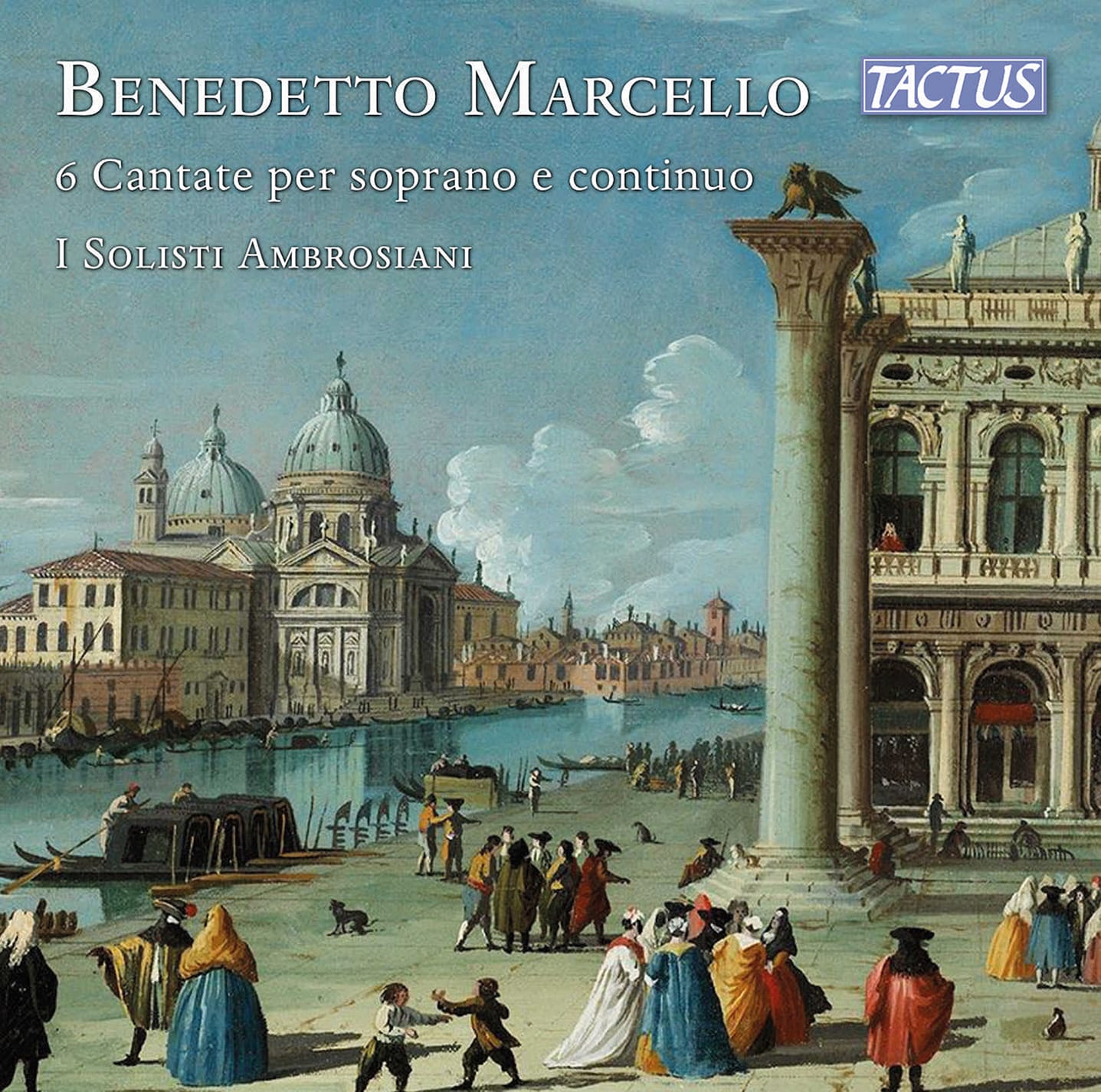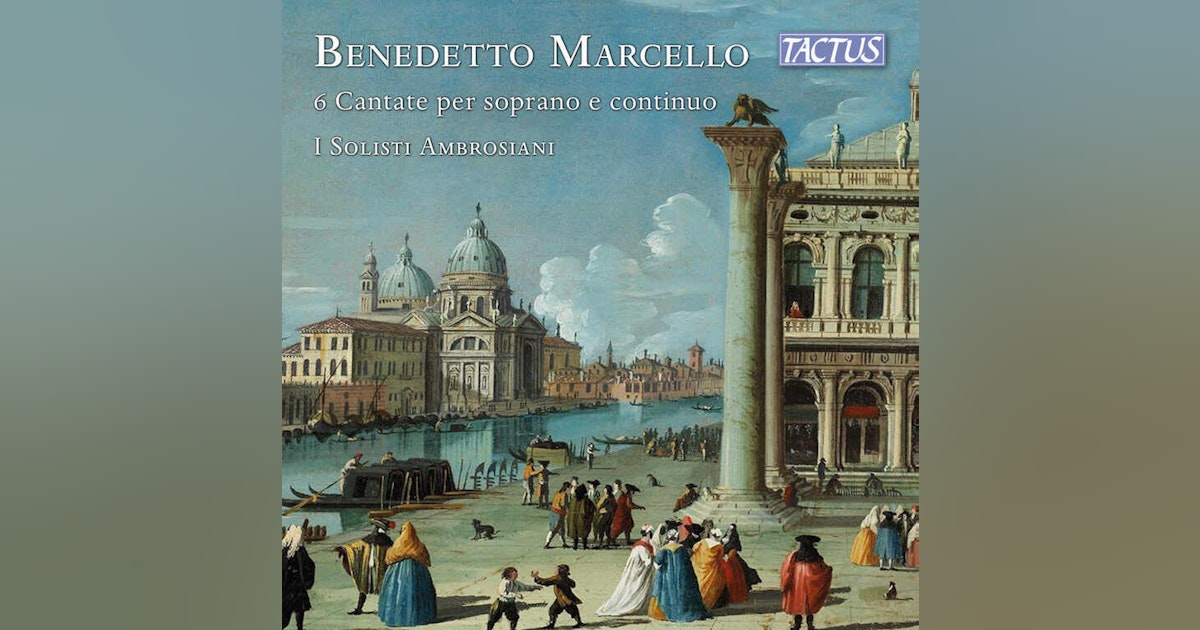Benedetto Marcello, Six Cantatas
Definitely, definitely with hearing, therefor, and I Solisti Ambosini has set down.a fine document.

This is an excellent disc, but it is somewhat scuppered by lack of texts. That said, these are delightful works. They ae all love cantatas, and the narrating voice can morph between male and female (despite being performed by one female singer).
One might associate Benedetto Marcello (686-1739) with the genres, but this solo cantata disc proves his expertise here, too. The music s delightful, though: listen to the lightness of the first, Costanza in lontananza. One characteristic of this music is wide intervals, which we hear often here. The continuo playing is fantastic, Claudio Figerio's nimble cello pure delight, Nicola Bisotti is the harpsichordist, while soon Tullia Pedesoli laudably uss very little vibrato aad is perfectly expressive; listen.to the little solo cadenza she gives, and how clean the intervals are. The whole is kicked off by Massimo Machese's expected theorbo. Together, these four performers comprise I Solisti Ambrosini:
Thee is no missing the lament of Deh vane dèl mir cor's opening; and what contrasts follow! . The music is markedly sectionalised, and I Solisti Ambrosiani honour the quick changes well. Thee are some tricky combinations of lines here, well negotiated in this recording:
The this cantata, Filli, quant' to t'amami, while conforming to the alternation of recitative and aria, seems to be characterised by n overall gracioso feel. Pedersoli is taken to the upper reaches of the range, and retains the purity and for the most part, tone. Listen, too, to Frigerio's superb cello contribution, so full of rhythmic life. At times, arts of the recitative take on an almost operatic bent:
Dimando a voi pietà is next up, markedly heavier in mood. Interestingly, Pedesoli takes an almost parlando approach to he opening aria; it is discomfiting, and as this is a begging for mercy, perhaps it should be!. The long, melismatic vocal lines giants n ongoing quaver (eighth-note) bass is most affecting, and the relentlessness of the bass seems to increase the tension and prevailing sadness:
Amor d'intorno mi ta scherzando is certainly agile fo all concerned. it is the least successful performance; it does not quite settle, perhaps because of the difficulties. This in turn puts attention on what felt a like.more defocused recording:
The final cantata, Se franger non potete, seems almost gallant at the opening. There are some lovely harmonic miss around, and Nicola Bisotti excels in he harpsichord contributions here. It's a lovely way to close. Sudden shifts of emotion in recitative are indeed vivid:
These are World Premiere recordings, which exponentially increases the desirability of this disc. The mnuacripts are preserved across three libraries: the Marciana in Venice, the Library of the Naples Conservatory, and the State and University Library in Hamburg. These are all part of Benedto's youth and indeed seek of n endlessly fail imagination. Throughout, Macllo uses chomicism, sudden harmonic shifts, and one frequently encounters augmented sixth chords.
Definitely, definitely with hearing, therefor, and I Solisti Ambosini has set down.a fine document.
This fine disc is available from Amazon here.


